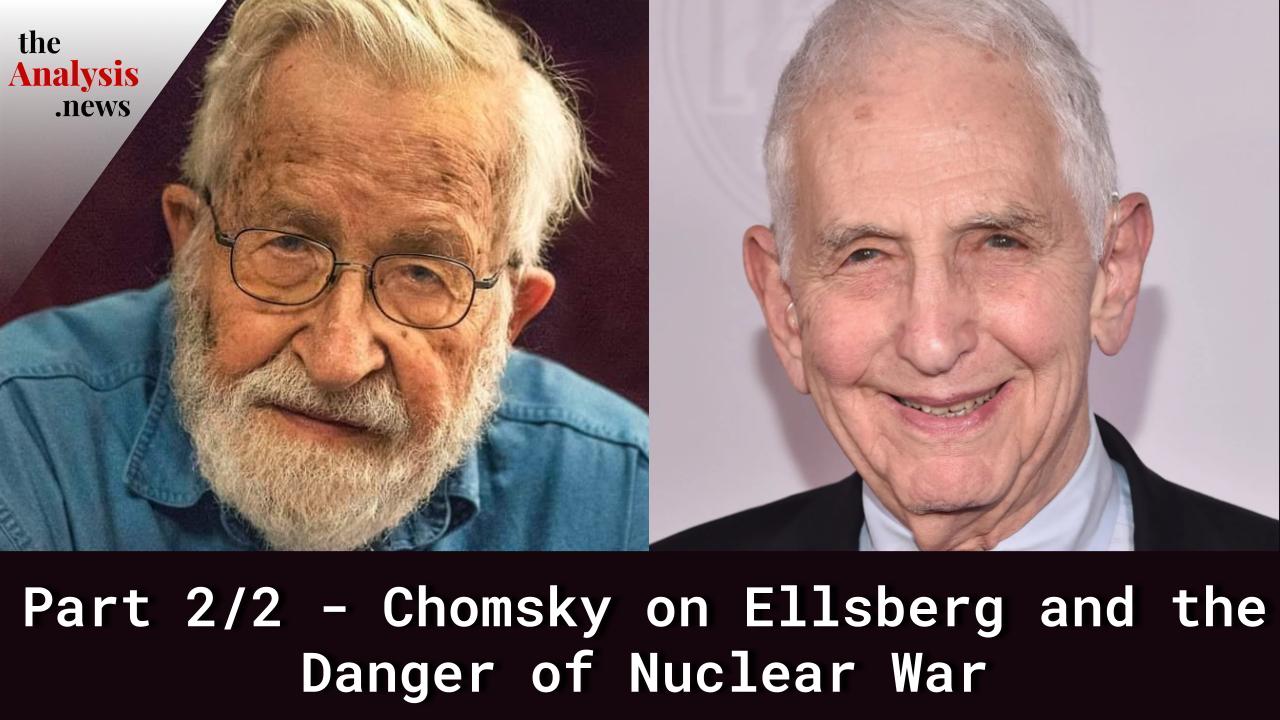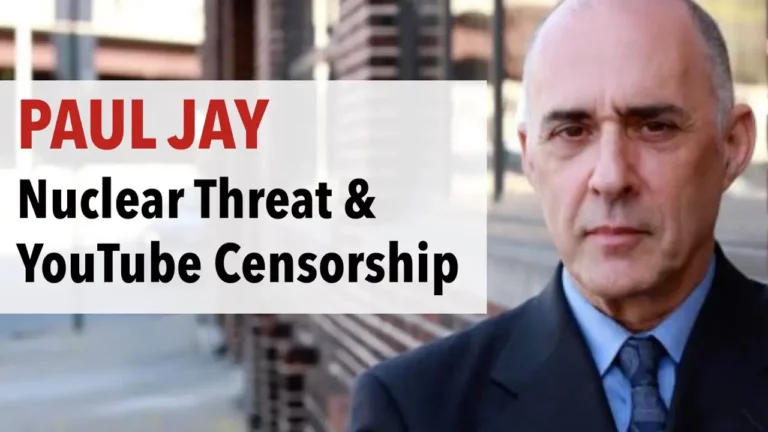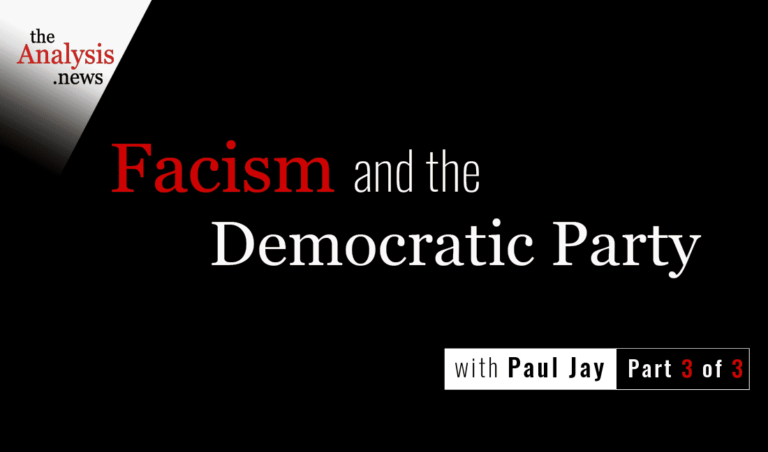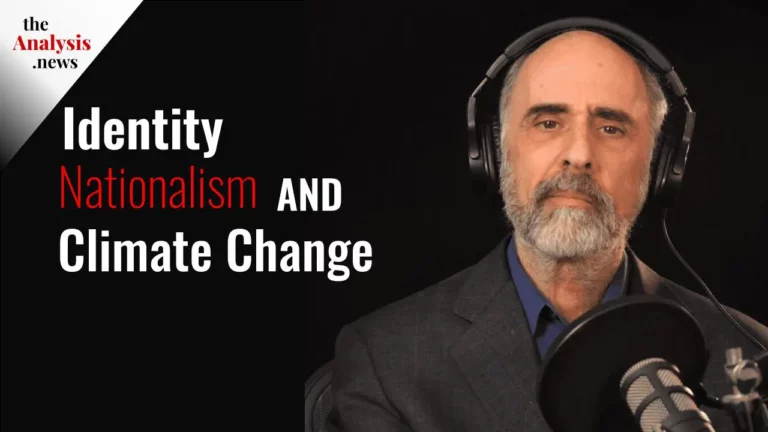Part 2/2 – Chomsky on Ellsberg and the Danger of Nuclear War
Noam Chomsky discusses the history of nuclear agreements and arms control treaties, highlighting their gradual dismantling by successive U.S. administrations. He criticizes the U.S. for its withdrawal from treaties and the deployment of military assets near Russian borders. Chomsky also expresses concerns about the dangers of artificial intelligence and the need to address larger-scale threats while working on immediate issues. He emphasizes the importance of understanding the world as it is and taking tactical decisions to achieve tangible progress.
Noam Chomsky
A nuke agreement was negotiated. It goes back to the 1950s when [Dwight D.] Eisenhower recognized that some steps should be taken to minimize and limit the threat of total destruction. He suggested an Open Skies Treaty, which would give each side, that’s the U.S. and Russia, some information about the other so they wouldn’t lead to accidental misunderstanding. It took a long time for that treaty to be established. Finally, it was.
In the 1960s and on, there were further steps towards limited arms reduction. In the 1980s, after massive protests, huge protests in Europe and the United States, [Ronald] Reagan agreed to [Mikhail] Gorbachev’s proposals for an INF Treaty, intermediate-range missiles, which was a great danger, that reduced the threat that went on with it. There was an ABM Treaty, which was very valuable in reducing threats, limited ABM installations to the capitals, Washington and Moscow, one missile place, and various steps were taken.
Starting around 2000, the United States started dismantling the whole arms control regime. It started with George W. Bush dismantling the ABM Treaty. Anti-ballistic missiles sound defensive, but every strategic analyst knows they are first-strike weapons. There’s no conceivable possibility that an ABM could stop a first strike, but it could imaginably; it’s dubious, but imaginably stop a retaliatory strike much weaker. Therefore, it’s essentially an inducement for a first strike. It’s understood on all sides. Furthermore, these systems are of enormous threat to Russia. The United States places ABM systems almost on the Russian borders with pretexts which are so absurd, I hate to repeat them.
Under Obama, the pretext was that we have to stop Iranian missiles, so we have to put ABM installations on the border of Russia. Furthermore, these systems can be adapted to first-strike weapons themselves by some technical manipulations. So to Russia, these are serious threats. Well, Bush eliminated them. He also refused to join in what was called the FMCT [Fissile Material (Cut-off)] Treaty, a treaty proposed by Russia to reduce the production of fissile materials. Refused.
Get to the Trump administration. Trump just wanted to eliminate everything. He got rid of the Gorbachev-Reagan INF Treaty, a very severe threat to Russia and to war, and made it very clear that he meant it. Immediately after the abrogation of the theory within the treaty, within weeks, the United States carried out missile tests violating the treaty, saying, “We’re serious about it.” Trump got rid of the Open Skies Treaty. He was about to get rid of the last treaty, the New START Treaty, but Biden was able to rescue it by literally a couple of days. As soon as Biden came in, he did accept the Russian offer to extend the treaty.
Regrettably, in his speech just yesterday, Putin announced that the Russians are going to suspend their participation in the treaty. Now they’re taking part in our effort to dismantle the arms control regime, which has, to some extent, reduced the severe threat of terminal destruction.
There’s a reason why the Doomsday Clock of the Bulletin of Atomic Scientists was moved recently to 90 seconds to midnight. During the Trump years, the analysts abandoned minutes and moved to seconds. Now it’s 90 seconds to midnight. I think if they were to do it tomorrow, it’d go closer.
The nuke agreements, which did come about and had some impact, have almost all been gone and puts us in even greater danger, along with not only, first of all, the loose talk about nuclear war as if it’s something imaginable, but also the steps that are being taken both in Europe and in Asia to increase the likelihood of a nuclear war.
The United States recently established permanent B-52 installations. B-52 are, of course, the major bombers for nuclear weapons. Permanent B-52 installations in Darwin, Australia, that’s Northwest Australia and the closest you can get to China. Just recently, it’s doing the same thing in the U.S. military bases in Guam. All of these are running major military maneuvers, naval maneuvers in the Pacific, huge armadas; RIMPAC, it’s called.
NATO itself has expanded under U.S. pressure to include the whole Indo-Pacific region, meaning surrounding China. The Biden administration has established a policy in which China is to be, in their words, encircled by a ring of what is called sentinel states armed with high-precision weapons provided by the United States aimed at China. These are very provocative moves being taken with regard to the Taiwan ‘flashpoint.’ The economic war that Biden has announced is designed to try to prevent Chinese technological and economic development by denying them the core elements of advanced technology and semiconductors. The United States is trying to compel its U.S. firms themselves that are now denied the right to provide such technology. The U.S. is imposing the same conditions on other countries. It’s not clear how they’re going to respond.
One of the major industries that produce advanced elements for semiconductors happens to be in the Netherlands. If they lose access to the Chinese market, it’d be a very severe blow. It’s the same with Samsung in South Korea and the same with Japan.
The U.S. supply chain system for developing advanced technology is so intricate that parts are made everywhere. There’s almost nothing that doesn’t have some U.S. component in it, maybe a patent or something. If U.S. laws deny the right to use any of that, a large part of the industrial system in allied countries will suffer severely. But that’s all part of the effort to try to keep China from developing.
It’s kind of striking. It’s been pointed out by high-level analysts that U.S. policy today is almost entirely negative. It’s not something we can offer the world, but something we can prevent others from doing. We offer, of course, the standard shibboleth: democracy, freedom, and so on, but very few people pay attention to that.
In fact, there was recently an important international conference in Munich, the Munich Strategic Conference, in February, which was quite interesting if you look at it in detail. It’s been reported extensively in the Foreign Press. I didn’t see much here. But there was a struggle between the United States and much of the rest of the world over U.S. policy in Ukraine.
U.S. policy in Ukraine is officially to continue the war in order to severely weaken Russia. Most of the world doesn’t want that. Latin America, Africa, and Asia almost unanimously opposed it. They said, “No. We want to try to move towards some steps which will call off the horrors before they get worse instead of escalating them.” The U.S. was almost desperately trying to get some support for its policy of escalating and continuing the war. One after another, leaders from Latin America in our backyard, Brazil, Colombia, and other countries said, “Not for us. We want to move towards a peaceful resolution.”
You talk about rationality, I don’t know what to say about it. The U.S. is increasingly isolated. I assume that Biden’s trip to Kyiv a couple of days ago and then to Warsaw was mainly a PR exercise to try to mobilize some international support for the U.S. intention program of maintaining, even escalating the war in order to severely weaken Russia. He went to places where this would be, of course, welcomed (Ukraine and Poland). The Pole’s top priority is to kill Russians. They’ve been involved in conflicts with Russia all throughout their history, so there’s a warm reception.
For Europe, this means heading towards a significant decline for the third world. The Global South doesn’t want anything to do with it. India, Indonesia, Brazil, South Africa, everywhere you look, they say, “Let’s try to find a way out of this before it gets worse, before we move up the escalation ladder.” It’s a striking phenomenon right now.
How dangerous is it? Well, India and Pakistan are both nuclear powers, and both develop nuclear weapons outside the framework of the Non-Proliferation Treaty Agreement that called into action the U.S. reactions to sanction them for this; that was done for a long time. In the case of India, they’ve since been relieved.
The Reagan administration pretended, I say pretended, that it did not know that the Pakistani dictator, the Zia-ul-Haq dictatorship, was developing nuclear weapons. They didn’t want to acknowledge that because the U.S. was relying on Pakistan as a base for carrying out its war in Afghanistan. Bear in mind that the goal of that war was not to liberate Afghanistan; it was to kill Russians. That was explicit on the part of the CIA chief, and [inaudible 00:14:07] was running it. Now we have internal documents, Russian-American archives, which show clearly that that was the purpose.
The main scholarly study on this was by Diego Cordovez, the UN negotiator who finally negotiated the Russian withdrawal over strong U.S. objections. He and Selig S. Harrison, a leading specialist on the topic, have a joint book discussing this: the U.S. effort to maintain, to sustain the war, to harm Russia, to kill Russians, whatever the impact on Afghans might be. Finally, the UN was able to negotiate a Russian withdrawal despite U.S. objections, and they put it straight. They say the U.S. policy was to fight Russia to the last Afghan. There’s quite remarkable material on this.
Zbigniew Brzezinski, who was [Jimmy] Carter’s National Security Council Advisor, took credit publicly for having convinced Carter to send weapons to the anti-government forces in Afghanistan to try to draw the Russians in to protect the pro-Russian government, called the Afghan Trap, to draw them into the Afghan Trap, and then to send more weapons, mobilize more radical Islamists to keep them there, even when the Russians were trying to withdraw, which is now pretty much demonstrated by the archives, but it was pretty well-known before. Well, Brzezinski was asked much later, what did he think about this? He said, “What is more important? Weakening and undermining the Soviet Union, or some agitated Muslims?” Like about a million cadavers, among others. Well, that’s the reasoning. We don’t care much about agitated Muslims. We got hierarchical’s like weakening our adversaries. I’m sorry, but that’s the way the world works. The U.S. didn’t invent it. Our predecessors in imperial sadism carried out similar policies.
The use of AI gives the impression of progress, but it’s very dangerous. Nothing works as predicted. For years Tesla and other companies have been working on self-driving cars, but something always goes wrong, something unpredictable. We’ve seen the recent catastrophes with the release of some of these large language models like Bing, which all of a sudden go crazy doing all kinds of things you never anticipated. You have to pull them off the market. What these systems basically do, we shouldn’t be mystical about it; they scan astronomical amounts of data and find regularities that they can make use of to make choices and decisions. In the case of large language models, the choice is to choose the next word after a sequence. But anyone who uses computers is familiar with auto-fill. You’re typing a message, and the computer says here’s the next couple of words you ought to use. It’s usually right, often uncanny. It’s exactly what you had in mind usually, but sometimes it’s wildly wrong. It’s inherent in the nature of these systems that they cannot be truly accurate. You can’t scan massive data, find regularities, and expect, yeah, that’s what you can do next. Usually, it works, but sometimes it does not. To put these things in control, Command and Control, is essentially asking for suicide.
We know case after case in the record in which human intervention stopped an automated response which could have set off a nuclear war. There are some famous cases like Vasili Arkhipov in the midst of the Cuban Missile Crisis. Russian submarines were under attack by American destroyers, depth bombs. They had lost contact with Moscow. The commander assumed a nuclear war was underway and figured we might as well go out in a blaze of glory and send off our nuclear torpedoes. The protocol required that he had to get the ascent of two officers. One of them refused, Vasili Arkhipov. That’s why we’re around today.
There was another famous case in 1983. Reagan was running programs simulating attacks on Russia, including nuclear attacks. Reagan and his advisors assumed the Russians would understand that this was just for show. It turned out they didn’t understand that, and they took it seriously. There was an automated warning of a missile attack. It reached the Russian officer. [Stanislav] Petrov was his name. The protocol was he was supposed to send it up to the higher command, and they would have a couple of minutes to decide whether to launch a retaliatory attack. He just decided not to send it up. He said it wasn’t credible. There weren’t enough missiles. You couldn’t have a missile attack with just that small number of missiles. Okay, he saved us.
Now, there was another time with William Perry, Secretary of Defense under Carter. Information came about of a Russian attack; automated information came to Perry, and he was supposed to transmit it to Carter. According to what he says, he was practically on the telephone when information came along saying it was a computer error. Well, you just can’t go along like that. There are hundreds of cases in which there were errors, computer errors, and system errors. All of these complex systems have inefficiencies and unpredictable properties. Anybody who uses a computer is familiar with that. It’s even worse when you have complex systems. I think it’s just inconceivable that any system like this would be allowed to enter into Command and Control. Humans are capable of plenty of errors and plenty of mistakes, but at least there’s a possibility that human intervention might recognize something that was unanticipated and not programmed in and can say, “This can’t be. Let’s stop it before we’re finished.” AI systems can’t do that. It’s pretty hard to second guess.
People who are working on immediate issues like labor rights, racism, and Medicare, have to focus attention on what they’re doing if they want to achieve anything. In principle, they ought to be, at the same time, trying to educate their constituencies on the large-scale threats that are in the background and may render all of this moot by just destroying us. I don’t think it’s a tactical error to concentrate on local issues that are critical and get the attention of communities and groups focused on those to overcome them with an understanding in the background that there’s a lot more for us to do. These are basically tactical decisions, and I don’t denigrate tactical decisions. They’re of extraordinary importance. Those are the ones that have immediate human consequences. So you have to make them carefully and thoughtfully considering the circumstances that you’re facing. But I don’t think a blanket criticism of such tactics is appropriate.
It is of immediate urgency. But the fact is, we have to face the world as it exists. We can’t carry out activism programs in a world that we prefer to imagine. So what is the world as it exists? As it exists, the general population does not have serious concerns about nuclear weapons or climate destruction. I haven’t seen polls about nuclear weapons, but I’m sure they would show that that’s not considered a high concern by most of the population. We have extensive polls on the environment. Pew Research and others at Yale University carry out regular polls on this. The results are appalling. The latest Pew poll, a week or so ago, asked people to rank their concerns. They gave them a couple of dozen choices to rank in terms of urgency. Nuclear weapons did not even make the list. It was not one of the things that they even thought worth asking about. Well, that’s a reflection of their assessment of public opinion, and it’s probably accurate.
What about what they call climate change, meaning the destruction of the environment? It was lowest on the rank of 2021 issues; I think it was. Climate change was lowest among Republicans; 13% thought it was an urgent issue, 13%. It was much higher among Democrats but nowhere near high enough. Well, those happened to be realities. You can’t pretend they don’t exist. That means that an enormous educational and organizational effort must be made before we can hope that organizers will address these issues as things that they hope to mobilize people to respond to. You have to deal with the society and the institutions as they exist. It’s unfortunate, but there’s no choice. Thirteen is a lot in a swing state. Unfortunately, it’s not. Thirteen, even in a swing state, which is Republican. If it’s a Republican state, 13% isn’t going to do anything. It’s such a low number that it’s too appalling to discuss.
Here’s the major issue that has ever arisen in human history: whether humans can survive in any decent form for another generation or two, and whether your grandchildren will have a decent world to live in. Thirteen percent think we should consider it. I mean, it’s appalling, but it’s a fact, and we have to deal with it. We can’t overlook it.
Final thoughts about Dan and hopes for the film. Well, thoughts about Dan are easily expressed. As I said, he’s done a number of things which are literally incomparable in their importance. The Pentagon Papers is one, exposing the extraordinary dangers of nuclear war, and the planning is another. In between, he’s lived a truly exemplary life of acting on these concerns, always on the frontline. I’ve been in affinity groups and demonstrations where Dan was a participant and quickly became the leader, as he always does. But he’s just constantly working on this endlessly and tirelessly. It has had an enormous effect. Again, incomparable contributions.
What are the hopes? The hopes are that we must reach a point where when the Pew Research Center asks questions on what are the urgent issues they face and give a couple of dozen options, they not only include nuclear war, which now they don’t do, but they get an answer which says it’s the top. Climate destruction and nuclear war at the top. Everything else is lower. Got a long way to get there. If this film can contribute to that progress, it’s an enormous contribution.
Podcast: Play in new window | Download
“Noam Chomsky is an American public intellectual known for his work in linguistics, political activism, and social criticism. Sometimes called “the father of modern linguistics”, Chomsky is also a major figure in analytic philosophy and one of the founders of the field of cognitive science.”









